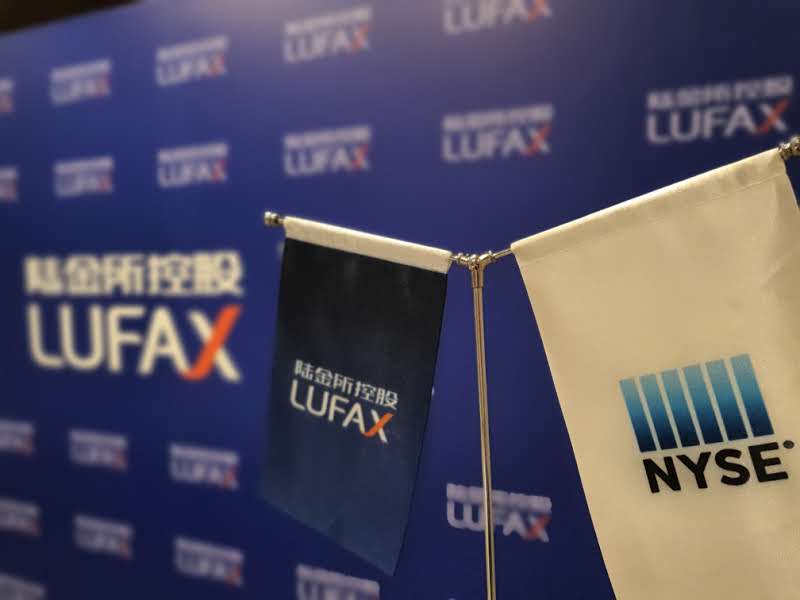SHANGHAI — Chinese fintech giant Lufax is laying the groundwork for international expansion over the next five years, following a cash injection from its U.S. IPO, the company’s chief executive told CNBC.
Lufax started trading on the New York Stock Exchange on Friday raising around $2.36 billion. The stock fell as much as 14.3% on debut but pared some of those losses to close at $12.85 per share, around 4.8% lower than the $13.50 offering price. U.S. stock markets sold off last week.
The company, which partners with financial institutions to offer small business loans and wealth management products via its platform, is starting to weigh a bigger overseas push after a small initial foray.
“The way we look at the international side, particularly South East Asia, is a great long-term opportunity. In many of the markets in Southeast Asia, you add it up, it’s still smaller than a province in China, so our immediate priority for the next three of four years in terms of growth is clearly the domestic market,” Greg Gibb, CEO of Lufax, told CNBC in an interview that aired Monday.
“But if you think about the changes going around Hong Kong, Greater Bay, opening up those links there, we think it’s the right time to start to put some preparation in place for what, five years out, could be quite interesting.”
A Lufax flag on display during an event in Shanghai, China to launch the company’s initial public offering on the New York Stock Exchange.
Arjun Kharpal | CNBC
The Greater Bay Area is a plan by China to connect Hong Kong and Macau and major cities in South China.
In 2017, Lufax launched a wealth management platform in Singapore. It has also launched services in Indonesia and Hong Kong. But income from international operations are “not yet material” to the business, according to the IPO prospectus.
Gibb said that the push overseas will involve partnering with local brands but with Lufax technology behind the product. The company touts its ability to use data and artificial intelligence to help effectively match customers to the right financial product.
U.S. listing
Lufax went public in New York despite the tensions between the U.S. and China. Lawmakers in Washington are pushing for greater scrutiny of Chinese companies through proposed legislation that threatens to delist some firms in the U.S.
Other Chinese firms have increasingly looked to markets in Shanghai and Hong Kong for IPOs or secondary offerings. For example, Alibaba, JD.com and NetEase, three companies listed in the U.S., carried out secondary listings in Hong Kong.
Ant Group meanwhile will carry out a dual listing in Hong Kong and Shanghai on Thursday in what is expected to be the world’s biggest IPO.
But Lufax is not alone in listing in the U.S. Chinese carmakers Xpeng Motors and Li Auto both went public on Wall Street earlier this year.
“Our view is that we are a Chinese company that has a lot of transparency that actually welcomes being on a global stage. We think that… New York is a great place for us to start, it gives us the access to the right investors, to the right analyst coverage,” Gibb told CNBC in response to a question about listing in New York.
“As you know, over the longer term, you have many options as to what you can do. But for now we think this is the good first step.”
When asked if the company had discussed a secondary listing in Shanghai or Hong Kong, Gibb said it’s “not something that we immediately plan” for but “if we had to pull the trigger it’s reasonably straightforward.”
Regulatory risk
Regulatory risks are certainly high for fintech companies in China where the rules sometimes struggle to catch up with the technology.
Gibb said that Lufax is well-equipped to deal with any changes from regulators down the road.
“One of the things which is true about China in general is it changes very quickly. The market changes very quickly, the regulations are changing to keep up with the market, one of our marks of success, the reason that we’ve actually brought the company public now, is because we think the regulatory framework has improved a lot over the last couple of years,” Gibb told CNBC.
“If you went back five years ago one of the issues with fintech in China was there wasn’t much regulation and that led to its own set of problems for others. But we think actually the goalposts are increasingly clear. The regulatory risk are declining. There will always be change. But one of our key strengths that we have developed over this period is the ability to pivot when you need to and always have a plan B.”
